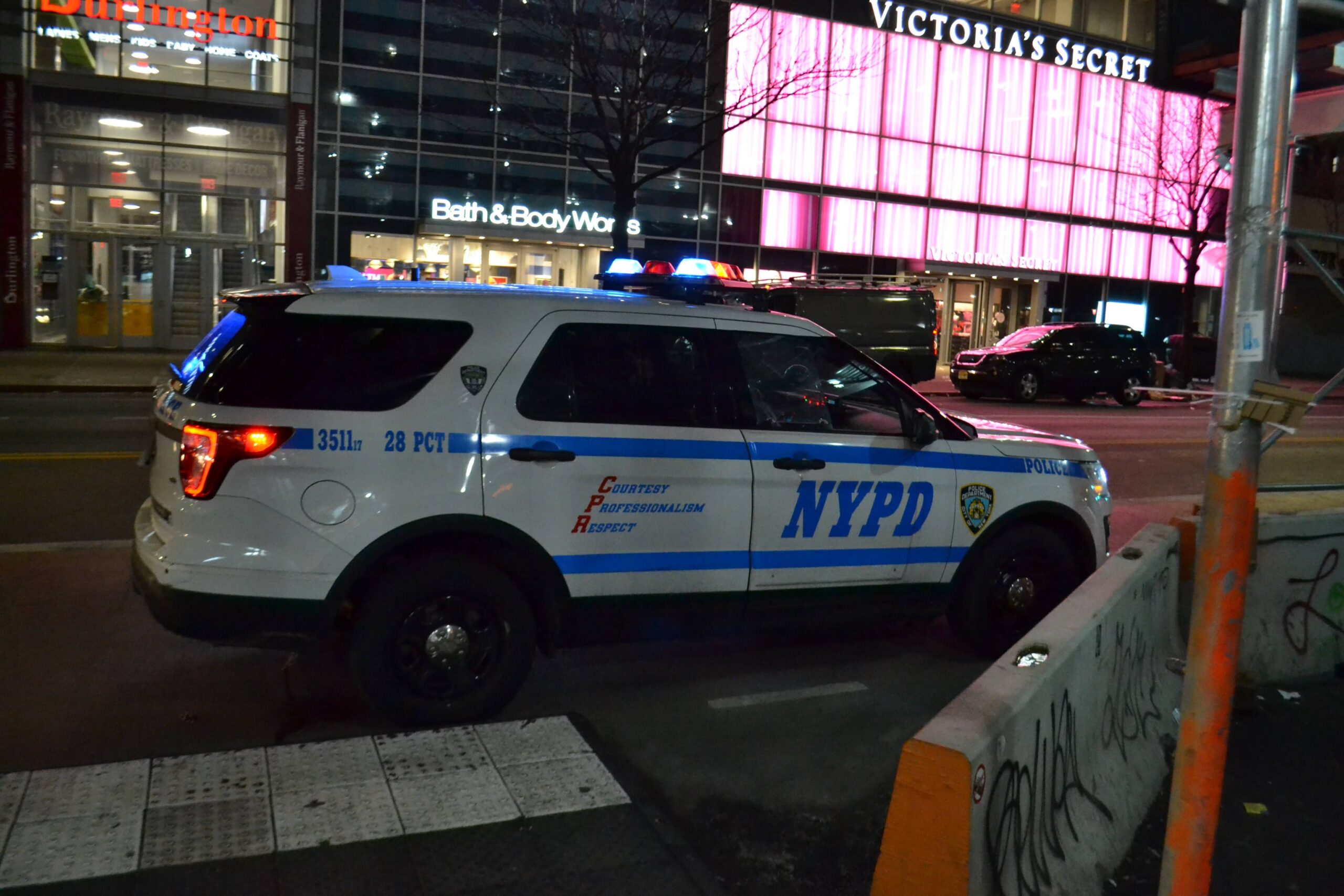The NYPD Intelligence Bureau Contacted the Washington State Patrol When Protests Erupted After Kevin Peterson Jr. Was Killed by Sheriff’s Deputies.
On October 29, 2020, protests erupted in Vancouver, Washington after Kevin Peterson Jr. was killed by Clark County, Washington sheriff’s deputies. Law enforcement left his body lying on the pavement for 11 hours and denied Peterson Jr.’s family grieving rights to visit the deceased.
The next day, Washington State Patrol (WSP), who was on the ground following the killing, received an email from the New York Police Department (NYPD) Intelligence Bureau.
“We would very much like to establish a point of contact with Washington State Patrol. We are happy to speak to anyone from WSP who is interested in joining,” wrote Detective Colin E. Sullivan of NYPD Intelligence Bureau International, in the email obtained by WOHM. Sullivan works in the Domestic Liaison Unit for Operation Sentry, an anti-terrorism program the NYPD launched in 2006 to monitor possible threats to New York City.
Operation Sentry monitors political protests
According to the documents obtained by WOHM, Operation Sentry monitors political protests. One incident report of the WSP response to the killing summarizes the correspondence: “Detective Colin Sullivan from NYPD Intelligence – his job is to monitor protest activity. He is looking to see if this is the kind of thing that is going to become national news, would like to monitor and get plugged in.”
Civil liberties groups raise concerns about the monitoring of protests. Lisa Nowlin, staff attorney at the ACLU of Washington told WOHM that, “While we will need to look further into the specifics and extent of WSP’s involvement with Operation Sentry, we have concerns about police surveillance of protests in general — and those concerns are heightened when connected to the NYPD, which has a long history of improper surveillance. Law enforcement should be protecting the safety and rights of individuals exercising their Constitutional freedom of speech, not surveilling and potentially silencing their critics — especially when people of color are disproportionately the target of police surveillance. Agencies must remain accountable to the communities they serve and to the Constitution, which guarantees individuals’ First Amendment rights.”
A WSP spokesperson told WOHM that the NYPD’s Operation Sentry has a “pretty robust information collection capability.” “[Operation] Sentry,” the spokesperson said, “provides updates when events happen around the country….Sentry is one of many information lists we subscribe to in order to create the widest possible intelligence vantage.”
“Like so many counterterrorism programs, Operation Sentry has expanded significantly beyond its original scope. It is deeply troubling that Detective Sullivan considered that a nonviolent protest 3,000 miles away was of concern to the NYPD. But it isn’t surprising. The NYPD has a long and shameful history of crackdowns on protests and abuse of the First Amendment. We hope that the Washington State Police will reject the overtures of the NYPD,” Sue Udry, Executive Director of the national civil liberties group Defending Rights & Dissent told WOHM.
The NYPD, by some accounts one of the largest armies in the world, did not answer questions about Operation Sentry’s monitoring of protests.
Growth of Operation Sentry
Operation Sentry initially invited law enforcement agencies within a 200 mile radius of New York City to share terrorism-related information and monitor “regional threats as they unfold.” It has since expanded nationwide and across the globe.
According to an October 2020 attachment Sullivan sent WSP (published below), through Operation Sentry the NYPD has established relationships with over 640 domestic members of law enforcement in nearly 270 agencies. The NYPD has a “point of contact” in every state, except Wyoming and South Dakota, as of October 2020.
Its International Liaison Unit has points of contact in Abu Dhabi, Australia, Canada, Dominican Republic, England, France, Israel, Jordan, Netherlands, Singapore, Spain and Qatar, and nine memorandums of understanding with international law enforcement agencies, according to the booklet attached below.
Sentry_Booklet_-_October_2020Download

